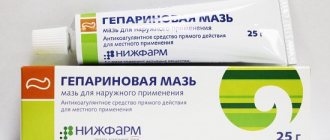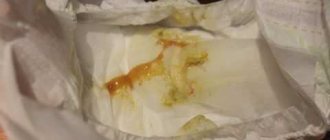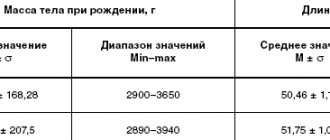Stool with mucus in a child often causes anxiety among parents. At the same time, the thought immediately comes to mind that the baby has health problems. Why do children’s stools actually contain mucous inclusions and what should parents do in this case? Mucus is one of the natural human secretions. Produced by special cells of the gastrointestinal mucosa, it allows you to perform many useful functions. For example, in a child with mucus, the remains of undigested food move more easily.
Why does stool appear with mucus?
Up to three months, small mucous discharge in the stool is considered within normal limits if the child’s general condition is good. Clumped mucous lumps in stool are a sign that a nursing mother needs to think about a special diet. Perhaps there is too much sweet or fatty food in mom’s diet. Such food provokes fermentation processes in the children's intestines, bloating and colic. Mucus in the feces of a newborn in the first weeks of life is associated with transient dysbiosis. If the cause is this disorder, then in a week or two the baby’s condition will return to normal on its own and no treatment will be required.
During the period of introducing the first complementary foods, the child’s body reacts to new food quite clearly: the consistency of stool, color, and smell change. Among other changes, mucus may appear. This symptom indicates that the body is not ready for complementary foods in general or is not ready for a specific product. Try reducing your portion or holding off on “adult food.” To accurately identify the cause, the following is recommended:
- when breastfeeding, mother's milk is checked for sterility;
- Analyze the mother's diet for allergenic foods. When determining what exactly the child’s body reacts to, keeping a food diary will help;
- They take tests for intestinal microflora to rule out diseases of the baby’s digestive system.
Normally, a newborn's gastrointestinal tract is not yet populated by various bacteria. The intestinal microflora develops after the baby actively begins to feed on mother's milk or formula, and also comes into contact with the outside world in various manifestations. In the first month of life, the intestines are gradually populated with beneficial bacteria. At this time, green feces with mucus in an infant are considered normal. However, options are possible when, for various reasons, the correct balance of microorganisms is disturbed. Below we will separately consider the most common causes of such violations.
There are several leading reasons that can lead to the appearance of mucus in the stool of a baby:
| Cause | Explanation | Demonstration |
| Maternal nutrition | The nutrition of a nursing mother directly affects the condition of the baby's intestines. Excess dairy, vegetables and fruits cause mucus. | Dairy products are necessary for milk production, but consuming them in large quantities contributes to the development of digestive imbalances in infants. |
| Lactase deficiency | To identify this condition, it is necessary to test the stool for the presence of carbon hydrates. Treatment consists of using lactase-containing medications as prescribed by a doctor. Although in case of hypersensitivity to any component of the dietary supplement, you should postpone breastfeeding and switch to artificial. | Fragments of undigested dairy products may appear in the stool as whitish pieces. |
| Lure | Introducing any new dishes for a baby is a kind of stress. Therefore, the reaction to each product should be noted in a food diary. All purees are administered strictly according to age. Mucus occurs more often on vegetables and fruits. Complementary feeding can be started at 4 months. However, if a child has problems with stool from birth, it is better to postpone the introduction of dishes until 5-6 months and start with cereals. | The choice of baby puree should be based on the age of the baby and the sensitivity of the body. |
| Dysbacteriosis | A general concept that denotes a disorder of the digestive tract due to an imbalance of microflora. At birth, the newborn's intestines are sterile. Only after 1 feeding microorganisms begin to populate it. Within 1 month. a balance is established between the microbial ratio, which is represented by the following microflora: beneficial (lacto- and bifidobacteria), saprophytic, opportunistic and pathogenic. Normally, beneficial microorganisms should prevail. The level of intestinal function and its susceptibility to pathogenic agents will depend on how the microbial biocenosis has formed within 3-4 weeks of birth. | To assess the imbalance of microflora, a stool test for dysbacteriosis is performed by culturing the microflora. |
| Acute intestinal infections of bacterial and viral nature | Infection is often always accompanied by the appearance of mucus in the body. Associated symptoms: cough, runny nose, high fever, vomiting, nausea. A blood test helps differentiate the bacterial and viral nature of the infection. With bacterial infection there are high levels of leukocytes, with viral infection - lymphocytes. The most common bacterial infections are dysentery (disease of unwashed hands) and salmonellosis. Viral orovirus infection. | The leading method in diagnosing bacterial and viral infections is taking a blood and stool test for dysbacteriosis and rotavirus. |
| Intussusception of the intestine | An extremely dangerous condition in which one part of the intestine compresses another, thereby forming a partial obstruction. Symptoms: abdominal pain during and immediately after eating, child’s moodiness, uncontrollable vomiting. Stool is transitional: from liquid with mucus, it gradually changes to thick, sparse, streaked with blood and mucus. Treatment requires emergency intervention and is performed by a pediatric surgeon in the operating room. | Intussusception is a dangerous condition that, if left untreated, can lead to the death of the baby. |
| Celiac deficiency | In other words, celiac disease. A lack of certain digestive enzymes occurs, against the background of which the body cannot break down products containing gluten (oats, wheat, rye, pasta, baked goods, canned food, dairy products with stabilizers and others). | Insufficiency of enzymes to break down gluten can significantly affect the general condition of the baby. |
| Allergy | It is mainly manifested by skin changes in response to the introduction of various allergens (food, medicinal, household). In addition to mucus in the stool, the baby develops a rash, redness, and peeling of the skin. | Skin changes in certain parts or throughout the body are an indicator of an allergy. |
| Persistent rhinitis | In infants, the patency of the nasal passages is an order of magnitude lower compared to children after 1 year. In some cases, the baby may still have original mucus in the nasal cavity, which significantly narrows the lumen of the passages. In the absence of proper care for the baby, if nasal congestion occurs, all the snot during sleep begins to leak not only into the lumen of the larynx, but also into the esophagus, reaching even the intestines in advanced cases. Lack of treatment in this case is dangerous for the baby. | The appearance of snot in a baby may indicate the presence of a viral infection, which must be treated. |
| Medications | More often, mucus occurs when taking carminatives. "Espumizan", "Bobotik" and other drugs used to eliminate bloating. | A medicine for bloating that can be used from the first days of life. |
As can be seen from the table, mucus in a baby’s stool can occur for a variety of reasons. There are some differences in the appearance of mucus with different types of feeding and infection with intestinal infections.
Celiac disease or gluten deficiency
Celiac disease, like lactase deficiency, is associated with a lack of necessary enzymes. Only in this case, the body cannot digest not animal products, but the plant protein gluten. This substance is present in gluten of rye, barley, and wheat. Symptoms of celiac disease appear with the introduction of the first complementary foods. Baby cereals with the addition of these grains irritate the baby’s intestinal villi, the absorption of nutrients is disrupted and various unpleasant symptoms occur:
- abdominal pain, severe flatulence;
- indigestion;
- mucus in stool, undigested food;
- poor weight gain in infants, lack of weight and height compared to age norms;
- skin allergic reactions.
Treatment for celiac disease is largely aimed at prevention. The main method is to exclude all products with gluten. After such a diet, general health quickly returns to normal, and intestinal function improves.
Mucus in a breastfed baby
The mother's diet directly affects the changes in the baby's stool. In a breastfed child, mucus in the stool is considered normal if it does not cause discomfort or deterioration in well-being. Normally, feces are similar to sour cream in thickness with a sour smell, but if mucus is present, this indicates the inability of the stomach to completely digest breast milk.
If you suspect a helminthic infestation, you need to take a stool test. The appearance of a small amount of mucus is facilitated by swallowing nasal secretions during ARVI. The stool of a bottle-fed baby has a constant consistency and color, so any changes require medical attention. Dysbacteriosis is manifested by loose stool mixed with mucus; biomaterial is submitted to confirm the diagnosis. If mucous formations are intense or stool changes, consultation with a specialist is required.
Intestinal invaginitis
Invaginitis or intestinal obstruction is not so common, but poses a direct threat to the health and even life of the child. Infants between the fourth and ninth months of life are most often susceptible to pathology. With intussusception, one section of the intestine is pulled into another, swelling develops in this area and blood circulation is impaired.
The disease begins abruptly with a change in behavior: the baby writhes, cries, and draws in his legs. Attacks of pain appear and disappear. Symptoms may include vomiting. A reddish mucous admixture appears in the stool, and later mucus with blood is released without any admixture of feces.
If you consult a doctor in a timely manner, intussusception in infants can in most cases be cured with the help of conservative measures. Timely medical assistance is vital.
Mucus during artificial feeding
When bottle-fed, mucus can more often occur when the formula is administered incorrectly, or during complementary feeding. Large consumption of fruits and vegetables quickly upsets the functioning of the intestines.
Against the background of such factors, dysbiosis occurs. To normalize the baby’s condition in this case, it is better to use lactose-free formulas with a low degree of allergy and keep a food diary.
Incorrect introduction of complementary foods, errors in infant nutrition
Improper management of the infant’s diet can cause digestive upset and, as a result, a change in the consistency and color of stool:
- insufficient amount of fluid;
- introduction of complementary foods too intensively or too early;
- non-compliance with intervals between feedings;
- unsuitable complementary foods.
Mucous streaks often become noticeable in feces after the introduction of vegetable or fruit purees to the menu. If your child reacts poorly to vegetables, then start changing the diet from cereals. When choosing porridge for the first feeding, give preference to buckwheat or oatmeal. But it is better to avoid semolina for up to a year - after all, it is considered the most allergenic.
Leukocytes and mucus in stool
Separately, it is worth mentioning the appearance of mucus in the stool with leukocytes. In general, there should be no leukocytes in the stool. Their presence indicates inflammation in the intestines. To assess the nature of the infection, a blood test is performed to identify the cause, which may be a bacteria, virus or, less commonly, a fungus. The inflammatory process can also accompany intussusception.
The child shows signs of acute intestinal infection. Fever, general weakness, signs of nausea and vomiting, diarrhea, foam and many other symptoms that may indicate intestinal inflammation. With such signs, you should not hesitate, and you should urgently consult a doctor.
Intestinal dysbiosis
Dysbacteriosis is one of the most common causes of changes in the appearance of bowel movements. In this condition, pathogenic bacteria suppress beneficial bacteria in the intestinal microflora. As a result, mucus appears in the stool, flatulence, constipation or diarrhea. With a significant change in microflora, the amount of mucus in the stool is very noticeable; blood streaks and remains of curdled milk are added to it.
Dysbacteriosis is treated with complex methods, including intestinal sanitation and further restoration of microflora. To avoid relapse in the future, you need to carefully monitor the correct feeding of the baby.
What treatment is used?
Suspicious color and volume of mucus in a baby's stool is a serious reason to seek medical help. The doctor will conduct the necessary tests and make a diagnosis. Treatment is to eliminate the original source of mucus formation. Thus, for dysbiosis, complex therapy is carried out, which includes drugs that suppress the proliferation of pathogenic microorganisms and stimulate the formation of beneficial microflora.
Intestinal intussusception is treated surgically by administering a barium enema to the child. Entering the intestines, barium straightens it, eliminating partial obstruction. If the cause of mucus is lactase deficiency, dairy products are excluded from the baby’s diet. Breastfed children should take a special enzyme preparation. To eliminate mucus that appears as a result of an allergic reaction in the baby’s body, the doctor identifies the culprit of the allergy and stops its effect.
What can parents do? No self-treatment, so as not to harm the baby. Newfangled probiotics, which promise immediate restoration of microflora in a child’s intestines, are taken only after consultation with a doctor. The baby's body is too vulnerable to experiment with it.
Having noticed mucus in your baby's stool, visually determine its color and volume, remember that a small amount of it is considered normal for an infant. The task of parents is to properly regulate the diet, follow the feeding schedule, and introduce complementary foods with caution. If the cause is more serious than poor nutrition, it is better to show the baby to a pediatrician.
Intestinal infections confirmed by test results require treatment:
- antibiotics: if the infection is bacterial in nature (staphylococci, streptococci, Klebsiella, E. coli and others);
- antiviral agents: for rotavirus, herpes virus and other microbes that can cause intestinal motility disorders;
- probitics: to correct dysbiosis, when using antibiotics without fail;
- enzymes: only with a pronounced change in stool (large amount of mucus). The enzymes of the child’s pancreas do not work at full strength and in this case it is possible to help with the breakdown of food with the help of medications (Creon). It is usually prescribed for 3-4 weeks at a dosage prescribed by age, together with food.
Prolonged rhinitis, against the background of which snot leaks into the digestive tract, requires treatment, first of all, of the respiratory system. The use of vasoconstrictors (Nazivin), hypertonic solutions (Aqualor, NaCl solution), suction of mucus with irrigation using an aspirator. When combined with inflammation of the throat and difficulty breathing, add inhalation to therapy (Pulmicort, Berodual; both together with physiological NaCl solution).
It is extremely rare that mucus may occur while taking medications from a series of carminatives (Espumizan, Bobotik and others). Replacing the drug (if necessary to eliminate flatulence) allows you to equalize the general condition of the intestines and eliminate mucus.
Evgeny Komarovsky joins the opinion of his colleagues regarding the presence of excessive mucus in the stool in infants. It is not normal if the baby poops more than 8-10 times a day, his stool is too liquid (watery), has a pronounced color, a pungent or putrid odor, a lot of mucus or foam, and blood. Call an ambulance without waiting for fever and vomiting. These are all signs of infectious or other diseases. Even normal diarrhea can cause complications.
Lactase deficiency
Lactase is one of the intestinal enzymes that is intended for the proper digestion of the carbohydrate lactose - milk sugar. If there is not enough lactase produced, then any dairy products are poorly tolerated, a painful fermentation process begins in the intestines, the stool becomes liquid, foamy, green, with lumps of mucus. The more undigested lactose, the more often the mother notices feces with mucus in the baby.
Lactase deficiency can be congenital or caused by the action of pathogenic microorganisms. In most newborns, lactase deficiency resolves over time. For treatment, a special diet is prescribed, a special lactose-free mixture is selected for artificial babies, and enzyme preparations are prescribed for breastfed children.
The importance of stool control
Mucus in the feces of infants is not a pathological sign, so its appearance must be assessed in conjunction with other symptoms. If the child is active, has an excellent appetite, sleep corresponds to age standards, nothing threatens the baby’s health. If you have diarrhea, you should not self-medicate, especially experiment with probiotics. All medications must be prescribed by a pediatrician! In case of diarrhea, it is not recommended to limit the child’s feeding and wean him from the breast. Breast milk contains protective components that will speed up the healing process. It’s not for nothing that they say: “The baby’s health is in the mother’s milk.”
Allergic reactions, dermatitis
Various atopic dermatitis occurs strictly according to the season: in cold weather the disease worsens, and in the summer it almost completely disappears. The first symptoms often appear from six months of age. Most reactions manifest themselves in the form of skin or mucous lesions. However, in atypical cases, allergies can affect the mucous membrane of internal organs and cause changes in stool. In the future, infants with dermatitis often develop other atopic diseases: asthma, allergic rhinitis, food allergies.
Treatment consists of following a special diet, taking vitamins, polyunsaturated fatty acids and antihistamines, and special external skin care. With timely treatment, as well as the exclusion of allergic triggers, in half of the patients, the symptoms of the disease completely disappear over time.
Runny nose
If a baby has a runny nose, then, due to his age, he cannot yet clear the discharge from his nose on his own. Most of the mucus enters the pharynx, then into the stomach and intestines. This process leads to the appearance of transparent mucus in the stool. There is no need to worry if the mucous component in the stool is transparent and insignificant.
Medications
Remedies for colic and bloating, such as Bebicalm, Espumisan, Bobotik and others, also provoke the appearance of mucous impurities in the stool. It is also possible for the baby to react to the mother’s medication. Therefore, uncontrolled use of medications is unacceptable during breastfeeding. Read the instructions carefully and discuss any medications you take with your doctor.










